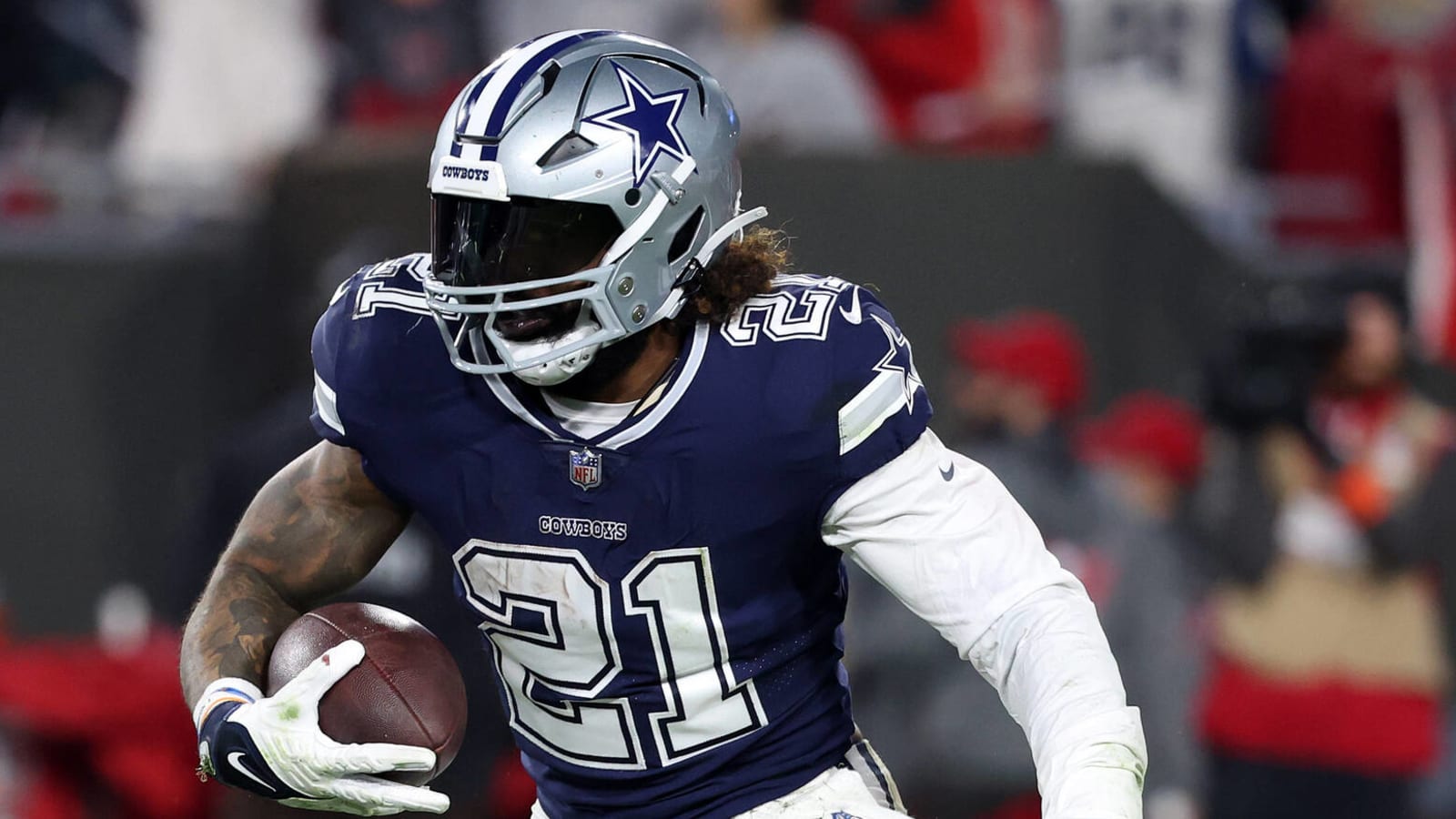
As my colleague Shane Taylor reported this week, several NFL players gathered on Zoom. The subject was the declining market for running backs.
This meeting was followed in short order by Giants' running back Saquon Barkley signing a one-year contract for $11 million. A far cry below what most people expected he'd get.
Former Cowboys running back Ezekiel Elliott joins Dalvin Cook, Leonard Fournette and Kareem Hunt, among others, who remain unsigned free agents.
It wasn't that long ago that owners were sending semi-trucks laden with pallets of cash to their starting running backs. So what changed?
Different set of rules
The rules for one. With the protections given to quarterbacks and receivers, who needs to run the ball?
Breath too heavily upon, much less make contact with, a quarterback or receiver and a defender will get buried in a blizzard of yellow hankies.
In the past, a defensive back could all but strip a receiver naked and not get flagged. A quarterback expected to get crushed on nearly every pass play.
But in today's game, we see roughing the passer calls if a defender's pinky grazes the quarterback's face mask. Thank Tom Brady for that bit of insanity.
So until the defensive backs are allowed to actually cover a receiver, and the bubble wrap is removed from the quarterbacks, the NFL is a passing league.
Which means the quarterbacks are getting the big contracts. Leaving less money to pay a running back that isn't generating a large percentage of the offense.
The Pacheco experience
The Kansas City Chiefs drafted Isiah Pacheco in the seventh round of the 2022 draft. He wasn't expected to be much of a threat.
By the time the Chiefs won the Super Bowl, Pacheco was the man in the backfield behind Patrick Mahomes.
He finished with 830 yards and five touchdowns on just 11 starts. In three playoff games, he had a combined 262 yards and a touchdown.
Not bad for an investment of just under $800,000 in 2022. His salary for the next three years? $827K, $880K and $934K in 2025.
And therein lies the problem. Why pay millions of dollars when you can draft a rookie every three or four years, pay him on the cheap and get decent production?
That's why Tony Pollard signed his $10 million tag and why Barkley caved and accepted an $11 million deal. That may be the high-end salary for running backs for a long time to come.
Elliott's fatal second contract
When the Cowboys drafted Elliott in 2016 with the fourth overall pick they signed him to a four-year, $24.9 million contract.
They also passed up a chance to take defensive back Jalen Ramsey instead and use their second-round pick to grab Derrick Henry instead of linebacker Jaylon Smith, but that's another post.
He got a $16 million signing bonus, and the contract paid out $4.5 million in 2016, $5.6 million in 2017, $6.8 million in 2018 and just under $8 million in 2019.
Just a quick reminder of what Pacheco's contract numbers for his first four years. Then compare his 2022 season to Elliott's.
Elliott had 14 starts in 15 games played. He finished with 876 yards and 12 touchdowns. He's no longer the starting running back in Dallas.
Who got the better value last season, the Chiefs or the Cowboys? Honestly, you have to say advantage Kansas City.
In 2019, Elliott held out for 40 days and ended up with a six-year, $90 million deal. Of course, he never saw all of that money as Dallas cut him earlier this year.
But Elliott's second contract and the low ROI the Cowboys got from it will be held up as a cautionary take in the NFL for a long time to come.
As long as running backs remain a dime-a-dozen, the contracts for the position will continue to grow smaller and smaller.
More must-reads:
- Ezekiel Elliott sent Tony Pollard a message before start of Cowboys training camp
- Who has the most rushing yards in a season for every NFL team?
- The 'Leading rushers from the 2021 NFL season' quiz
Breaking News
Customize Your Newsletter
 +
+
Get the latest news and rumors, customized to your favorite sports and teams. Emailed daily. Always free!

